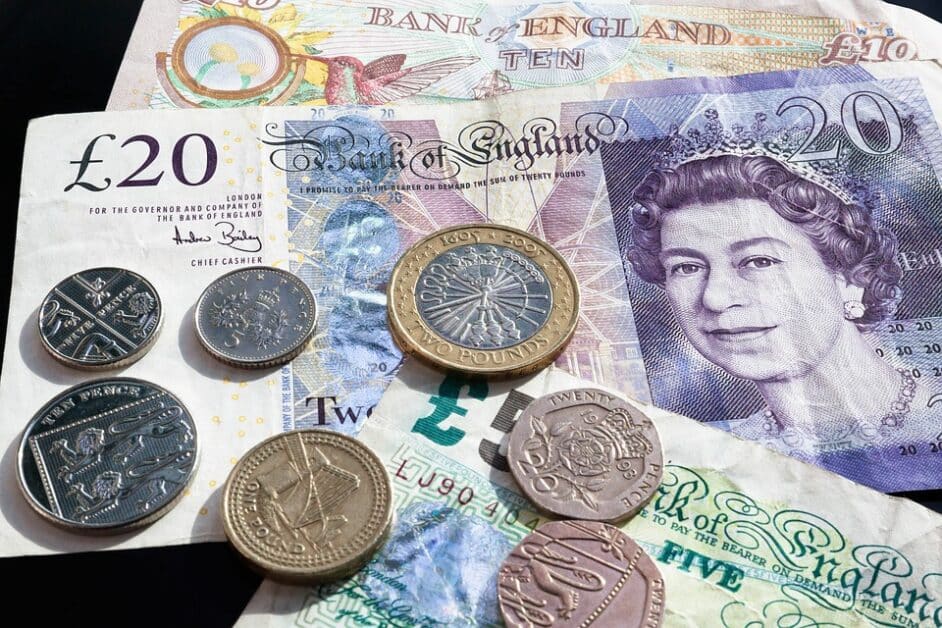While we focus primarily on “traditional” investing vehicles here at Stacking Benjamins, there’s an entirely different beast out there for those who are brave enough to tackle it: trading currencies/foreign exchange. If you decide that this approach suits you and fits into your financial plan, let’s go cover some best practices to get started.
Stackers who want to start Forex trading should choose the best possible Forex broker. Choosing the right forex broker can increase your chance of making money. It will also reduce the risk of you getting scammed. Most forex brokers are honest, but there are also numerous unregulated scam brokers out there.
Your goal is finding an honest broker that offers the tools you need and charges low trading fees. Consider the following when comparing brokers:
Regulation
It is essential that you choose a Forex broker that is overseen by a trusted regulator. A small number of traders prefer to use unregulated brokers due to the fact that they sometimes offer high leverage and large deposit bonuses. We do not recommend doing this. The risk of being scammed is much higher if you choose an unregulated broker, and Forex brokers offering large “bonuses” are more likely to scam you.
There are a number of trusted regulators that offer trader protection. Examples of trustworthy regulators include:
• US Commodity Futures Trading Commission – This agency is responsible for overseeing forex brokers in the US. It is independent of the US government.
• FCA – Regulates forex brokers in the UK. They offer good trader protection • BaFIN – BaFIN regulates forex brokers in Germany.
• CySEC – Is the financial regulatory agency in Cyprus, and brokers regulated by CySEC are allowed to offer trading in all of the EU:
• Australian Securities & Investments Commission – Regulates brokers in Australia. • The Securities and Futures Commission – Regulates digital trading in Hong Kong.
• Monetary Authority of Singapore – Oversees trading in Singapore
• FCSA – Regulates forex brokers in South Africa.
Choosing a forex broker that is under the purview of a trusted regulator dramatically reduces the risk of getting scammed. Brokers that are licensed by a trusted regulator will follow the regulations or else they can/will lose their license. Regulated brokers will keep client money separate from the broker’s money and will offer fair trading. They will process withdrawals quickly and diligently.
Some regulators offer little to no trader protection, and being regulated by these regulators is practically the same as being unregulated. Some regulators that are less than trustworthy include many regulators based in the Caribbean and South America.
Reputation
You can find a lot of information about Forex brokers and their reputations online. See what other traders have to say about the broker you are considering. Do traders seem happy with the broker, or are the majority of opinions negative?
Of course nobody is perfect. Naturally no brokers will have 100% positive reviews. There are always dissatisfied traders. Traders blame the broker for the fact that they lost money. Be reasonable and don’t get scared by a few negative reviews. Look at the majority sentiment and trends.
Beginner friendly
If you are starting forex trading for the first time, then you should look for a forex broker that provides you with the support you need as a new trader. Look for a broker with a free demo account and educational material that teaches you how to use the platform and that allows you to get your feet wet with small trades.
• Educational material is important as it makes it easier for you to learn how to use all the features of the platform. You can learn about forex trading on other websites, but the best place to find information on how to use a broker’s system is to read the broker’s own tutorials, since they will be specific to that platform.
• A free demo account allows you to make virtual trades to learn how to trade until you become skilled/confident enough to try your hand in the real forex market. Using a demo account while learning how to trade successfully can save you a lot of money.
• Low minimum trades make the barrier to entry lower and make it easier to get started with a smaller initial investment. Making small trades allows you to reduce your overall risk when trading. Making multiple small trades (rather than one large trade) will always reduce the risk of your trades. As in stock market investing, diversification reduces risk. Try to find a broker that allows you to make trades risking no more than 1% of your overall trading portfolio for each trade. If you want to deposit USD1000, you should look for a broker with a USD10 or less minimum trade.
Beginners should look for a broker that makes it easy to open an account and deposit money into the account. You can find a list of forex brokers that are suitable for beginners by visiting daytrading.com.
ECN, STP, or dealer desk brokers
Open your account with an ECN or an STP broker. ECN/STP brokers are brokers that make your orders on the open market and help you complete the transaction with a 3rd party. They earn money based on their commissions.
Dealer Desk (A.K.A. “market makers”) Forex brokers do not pass your order on to the open market. The orders are sent to the dealer desk, and the Forex broker takes the opposite position to yours. They act as counterparts, not just as a broker. Dealer desk brokers earn money when you lose money and lose money when you make profitable trades. This creates a conflict of interest since the broker benefits when you lose money. This is not the case with ECN and STP brokers. They do not earn money when you lose money and do not find themselves in a conflict of interest with the trader. ECN/STP brokers have interests that align with the traders. The more traders profit, the more they will trade and the more the broker will earn in commission. ECN/STP have a reason to help their traders make profitable trades by providing good tools and good service.
It is easier to fill large transactions using an ECN or STP broker since they provide access to a lot of liquidity. Orders that are too big for a single dealer desk can easily be filled by an ECN/STP broker.
Fees and commissions
Fees are also a very important factor to consider when you choose a broker. Lower fees make it more likely to earn money on your trades. High fees can eat into anyprofits, especially when you make a large number of transactions. Look for a broker that offers low fees and low spreads.
Make sure the broker doesn’t charge any monthly account fees or hidden fees (such as withdrawal fees or inactivity fees).

Market Coverage
Different forex brokers offer access to different currencies. Some brokers only offer trading in a small number of currencies, while other brokers allow you to trade with a large selection of FX choices. It is important to choose a broker that provides you access to the currencies that you want to trade. If you do not know which ones you intend to trade, then it is best to choose a broker that offers a larger selection.
If applicable, choose the fx broker that provides access to all the types of financial instruments that you want to trade. Do you need access to CFDs, futures, options, swaps or some other type of FX instruments?
Tools & Platforms
As a beginner forex trader, choose the platform that provides the most valuable tools and resources to fit your needs. There is no one-size-fits-all answer. Know thyself and opt for the best fit for you. Is an intuitive mobile interface important to you? If so, put that near the top of your list of priorities. How about easy/quick access to your money? You know what to do…
Depositing and Withdrawals
Different brokers will support different options for depositing and withdrawing money. You should look for a broker that allows you to use banking options that are easy and cheap for you to use.
Takeaways
Forex trading isn’t for everyone. But if you get the forex itch and have to scratch it, go into it with your eyes wide open. Study, learn, and practice with a demo account before putting any real money in play. Limit your forex exposure to a relatively small percentage of your overall portfolio.
Forex trading can be extremely risky, but can offer considerable upside. Do your homework and only trade with money that you can afford to lose.


Leave a Reply